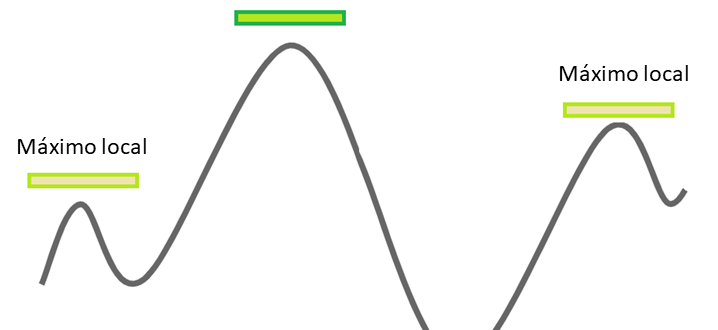If we want to reach the highest peak of a landscape with local maxima, we must combine two opposite strategies that share analogies in politics, computer science, and evolutionary theory.
Generalizing, an optimization algorithm must combine exploration and exploitation. For example, given a function
- Z = f(x)
Where x are the possible solutions to the problem and there is a landscape f(x) which we do not know, if our objective is to maximize Z and each calculation of f(x) has a cost, a possible algorithm is:
- Choose a random value of x.
- Calculate Z a little before and after x. In this way we will have the slope at that point x.
- Choose a new x by increasing the optimization slope (improving Z), and repeat the calculation.
- When both to the left and to the right of x we have lower values of Z, we will have reached a maximum (local or global, we do not know).
The problem is that in this way we can get stuck in a local maximum. In an optimization algorithm, it is not enough to exploit what we know. We need to explore what we don’t know. We need new knowledge, but we need to balance exploration and exploitation.
The metaphors and analogies for these two strategies are:
Exploitation: Conservative Right (Keep doing things the same way to prevent them from getting worse), Authoritarian Left (Centralized power, maximum state intervention, institutional initiative).
Exploration: Progressive Left (Change the way things are done to try to make them better), Liberal Right (Decentralized power, minimum state intervention, personal initiative).
See also:
